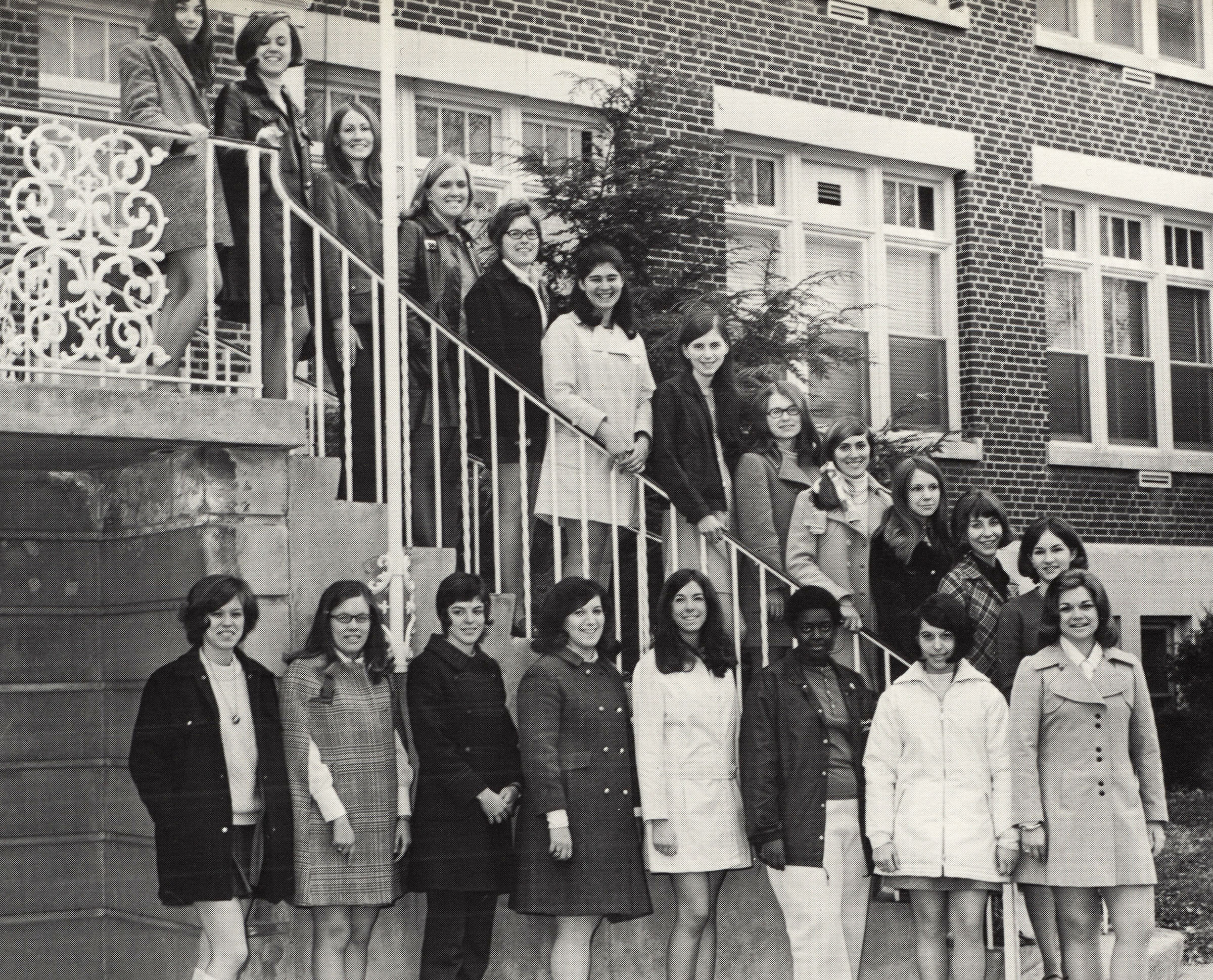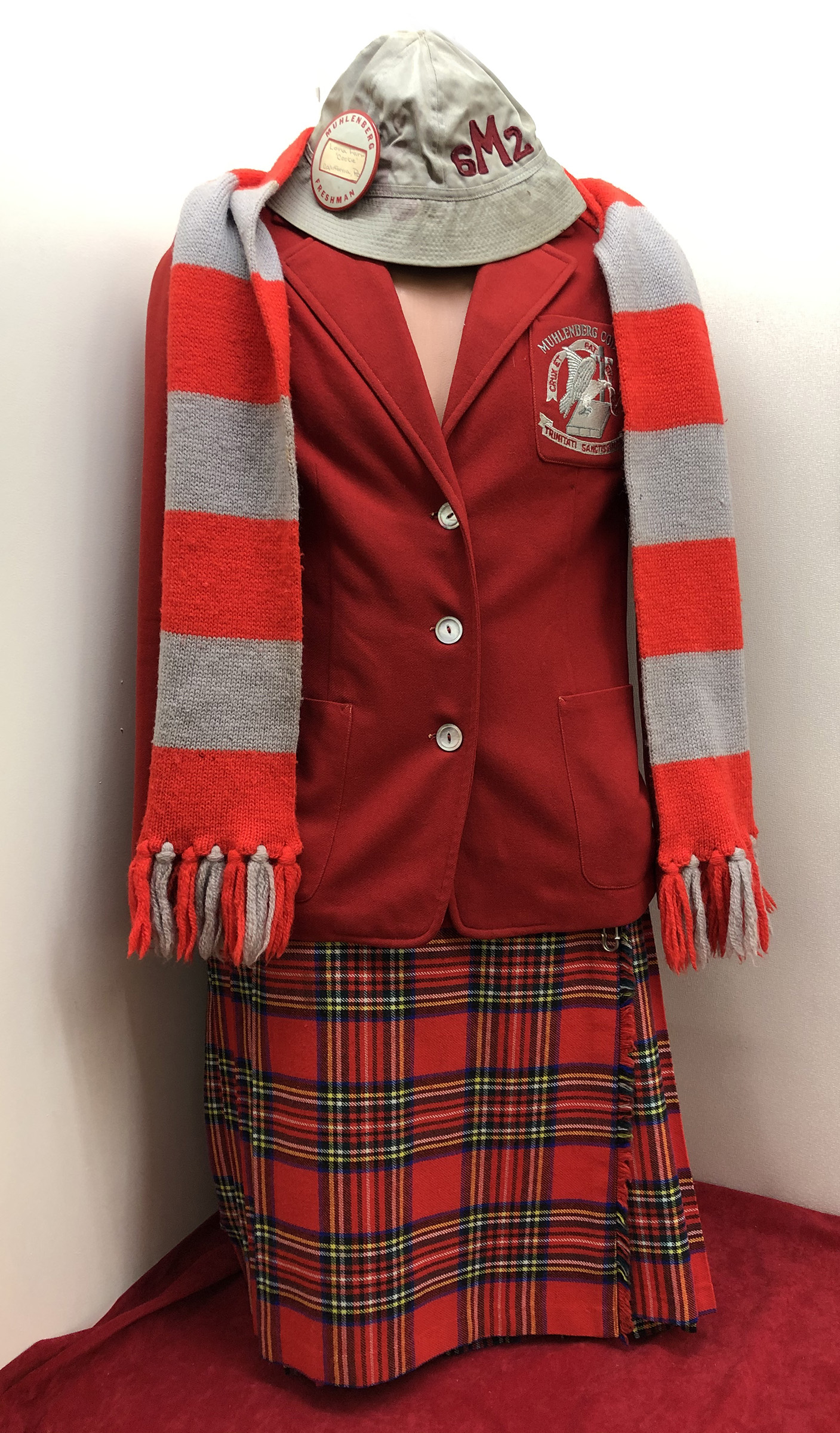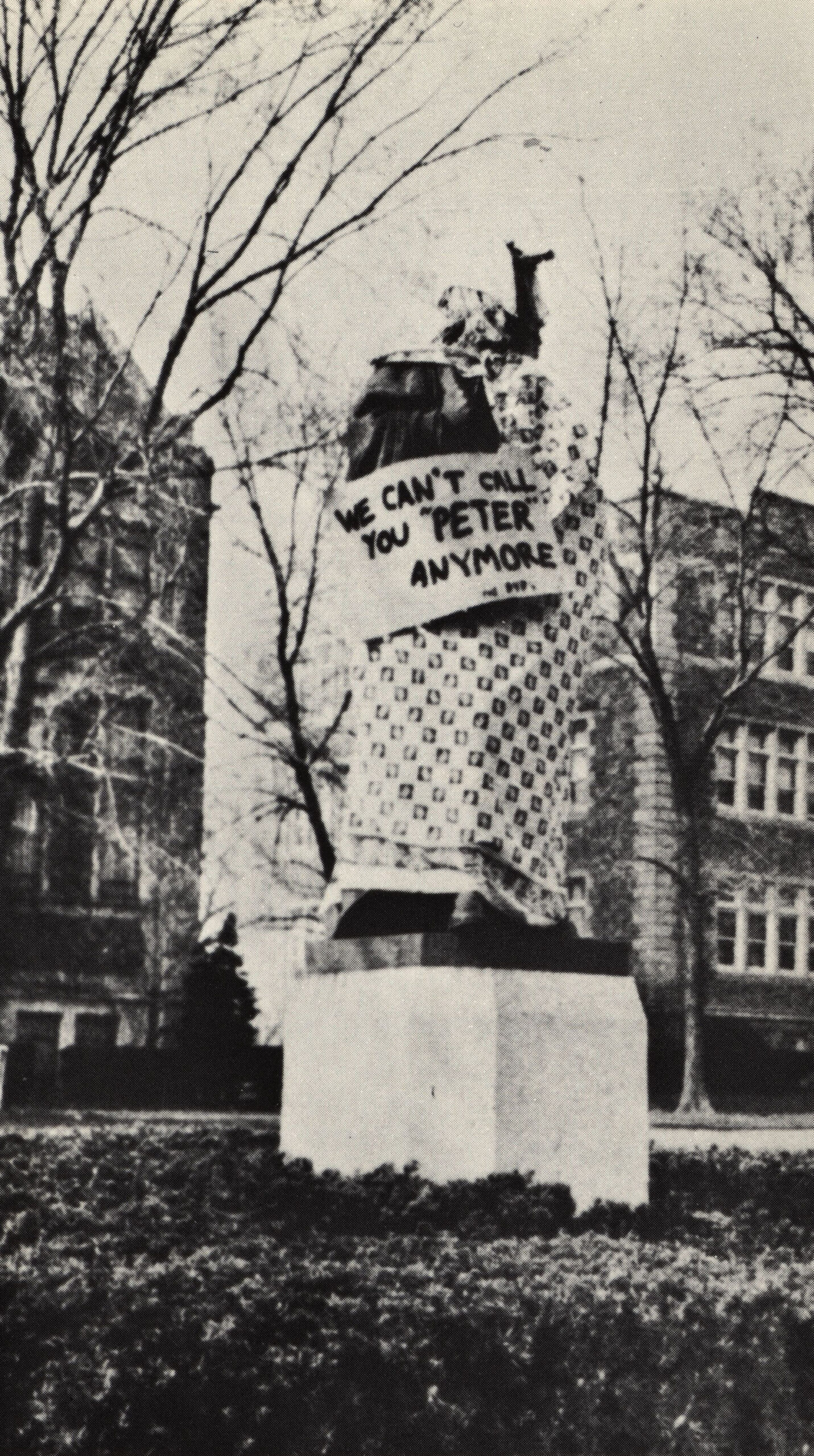The Muhlenberg Memories Project
Coeducation
Women entered Muhlenberg College as residential, non-Extension School students in the fall of 1957. That first cohort of 123 students comprised 103 freshmen and 20 transfer students. West Hall (now Brown), previously a freshman men’s dorm, was converted into a residence hall for women.
The advent of women was not greeted with unequivocal approval. The Muhlenberg Weekly is filled with poems, cartoons, and commentary expressing doubts about the wisdom of admitting women and their ability to perform academically on par with men. Nevertheless, the women persisted. They joined the student court, the pre-law and pre-med clubs, the German and science clubs, WMUH and the Muhlenberg Weekly. The Cardinal Key Society was the only group that explicitly forbade female membership for several years.
Additionally, the students formed the Women’s Council, with the goal of “helping to provide, establish, develop, and administer rules for group living, promoting the interests of women students in college sponsored activities, and promoting general cooperation among women students.” Housemothers in West Hall were responsible for enforcing rules for women that were much more severe than those imposed on men, but which were considered necessary for in loco parentis conditions to be maintained: curfews, dress codes, rules of guests, and dorm responsibilities.
Female students established a number of beloved traditions in their first decade on campus, including the annual Spring Sing and the holiday door decorating contest.
If you would like to hear about life as a female student from the perspective of Lona Farr ‘62, you may explore her oral history here. Additionally, you may access the point-of-view of an administrator, hearing from Dean of Women Anne Nugent, thanks to her participation in the John S. Davidson Oral History Project of the 1970s-80s.





